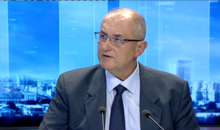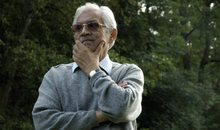
 Flash News
Flash News
Shuhet në moshën 86-vjeçare regjisori i njohur Piro Milkani
Poisoning of children in Gramsh, health authorities react after the publication of the case
SPAK conducts inspections at Tirana Municipality, 5 phones seized
4 days after the intervention at a dental clinic in Tirana, a 63-year-old Italian man dies in hospital
Igli Tare officially appointed as Milan's new Sporting Director
DASH after the meeting in Riyadh: US and Russia agreed to work towards peace in Ukraine
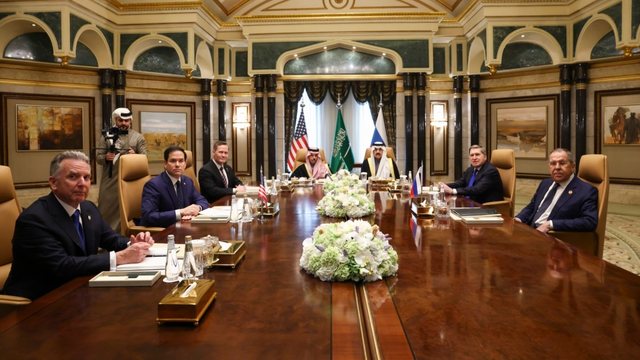
The United States and Russia agreed on Tuesday to address "irritating" factors in relations between the two countries and have begun working toward ending the war in Ukraine, the US State Department said on Tuesday, making clear that the efforts are still in the early stages.
"A phone call, enriched by a meeting, is not enough for lasting peace," said State Department spokeswoman Tammy Bruce after the meeting, which took place in Riyadh, Saudi Arabia.
According to the State Department, the parties have agreed to continue cooperation on issues of common geopolitical interest, economic opportunities, and investment opportunities arising from the end of Moscow's war in Ukraine.
Yuri Ushakov, foreign policy adviser to Russian President Vladimir Putin, said on Tuesday that the meeting was successful.
Ushakov said that the parties have agreed on the conditions for a meeting between Putin and US President Donald Trump.
He said that a meeting between the two leaders is unlikely to take place next week, and that there is no concrete date for the meeting.
According to him, the two sides will form their negotiating teams to have contact at the appropriate time.
The head of Russia's Sovereign Wealth Fund, Kirill Dimitriev, has said that the Russian and American delegations have started to listen to each other, but it is too early to talk about compromises.
"I think it's too early to talk about compromises, I can say that the parties have started to communicate with each other, they have started to listen to each other, they have started the dialogue."
The American side - consisting of US Secretary of State Marco Rubio, National Security Advisor Mike Waltz and US special envoy for the Middle East, Steve Wikoff - has said in advance that today's meeting is not about starting negotiations, but rather about seeing if Russia is "serious" about ending the war in Ukraine.
The Russian side - consisting of Russian Foreign Minister Sergei Lavrov and Yury Ushakov, foreign policy advisor to Russian President Vladimir Putin - has said that the priority will be the normalization of relations with the US.
Ukrainian President Volodymyr Zelensky has not been invited to participate in the talks and has said that Kiev will not recognize any agreement reached for Ukraine when Ukraine is not present at the negotiating table.
Zelensky is currently on a visit to the Middle East, including the United Arab Emirates, Saudi Arabia and Turkey.
As the talks continued, the Kremlin said President Putin was prepared to talk to Ukrainian President Volodymyr Zelensky "if necessary."
“Vetë Putin ka thënë se është i gatshëm të negociojë me Zelenskyn, nëse është e nevojshme”, ka thënë zëdhënësi i Kremlinit, Dmitry Peskov para gazetarëve.
“Megjithatë, duhet diskutuar bazën ligjore të marrëveshjeve, duke marrë parasysh që legjitimiteti i Zelenskyt mund të vihet në pikëpyetje”, ka thënë ai.
Zelensky është zgjedhur president më 2019 për një mandat pesëvjeçar.
Sipas ligjit, atij është dashur t’i skadojë mandati në maj të vitit 2024, mirëpo zyrtarët ukrainas kanë thënë se vazhdimi i luftës dhe shpallja e gjendjes së luftës e bëjnë të pamundshme mbajtjen e zgjedhjeve të reja.
Ligji i Ukrainës për gjendjen e luftës ndalon mbajtjen e zgjedhjeve lokale, parlamentare dhe presidenciale.
Peskov ka thënë se Rusia nuk është kundër anëtarësimit të Ukrainës në Bashkimin Evropian, për aq kohë sa nuk përbën kërcënim për sigurinë.
“Kjo është e drejtë sovrane e secilit shtet. Po flasim për integrim dhe procese ekonomike, dhe në këtë pikë, natyrisht, askush nuk mund të diktojë diçka për një shtet tjetër. Nuk do ta bëjmë këtë”.
“Por, qëndrimi ynë në çështjet e sigurisë, aleancat ushtarake, është krejt tjetër. Ajo është temë tjetër dhe të gjithë e dinë këtë”.
Takimi i 18 shkurtit në Riad është zhvilluar pas intensifikimit të përpjekjeve të Uashingtonit për t’i dhënë fund luftës gati trevjeçare në Ukrainë, ndonëse taktikat kanë tronditur qarqet diplomatike në Kiev dhe Evropë, meqë ka paqartësi për llojin e marrëveshjes që mund të arrihet në të ardhmen, me qëllim të dhënies fund të luftës.
“Ky mëtohet të jetë hapi i parë në procesin e gjatë të negociatave, mirëpo gjërat po lëvizin shpejt”, ka thënë Nigel Gould-Davies, ish-diplomat britanik që aktualisht është hulumtues i lartë në Institutin Ndërkombëtar për Studime Strategjike, në disa përgjigje për Radion Evropa e Lirë.
“Ekziston një rrjedhshmëri që do të vazhdojë të avancohet në këto kohë paqartësish”.
Bisedimet mes dy vendeve janë të parat të nivelit të lartë në vjetët e fundit, dhe kishin për synim hapjen e rrugës për një samit mes presidentit amerikan, Donald Trump dhe presidentit rus, Vladimir Putin.
Në delegacionin amerikan nuk është përfshirë gjenerali i pensionuar, Keith Kellogg, i dërguar i posaçëm i Shtëpisë së Bardhë për të negociuar një zgjidhje për luftën.
Zelensky ka thënë se Kellogg do të arrijë në Kiev më 20 shkurt për “bisedime të gjata për garanci të sigurisë”.
Ndërkohë që liderët evropianë janë takuar në Paris në një samit urgjent për Ukrainën dhe çështje të mbrojtjes, Lavrov ka thënë se nuk sheh arsye që evropianët të përfshihen në diskutime.
“Asgjë e madhe nuk do të arrihet derisa të mos jenë Trumpi dhe Putini në dhomën e njëjtë”, ka thënë Andrew D’Anieri, hulumtues i lartë për Këshillin Atlantik, në disa përgjigje për Radion Evropa e Lirë.
“Kjo do të thotë se ka ende kohë dhe shumë mundësi që evropianët dhe ukrainasit të formësojnë idetë e administratës Trump”.
Throughout the election campaign, Trump pledged to end the war in Ukraine very quickly, and now his administration aims to fulfill this pledge in the first 100 days of taking office.
The talks in Saudi Arabia took place after a series of statements made by him and American officials in recent days regarding the war in Ukraine.
On his first official trip to Europe since taking office, US Secretary of Defense Pete Hegseth said on February 12 in Brussels that Washington does not support Ukraine's membership in NATO as part of a peace agreement, and it is unrealistic for Kiev to return to the borders it had in 2014, before Russia occupied the Crimean Peninsula and eastern Ukraine.
Hegseth also said that European military troops should be the main force to guarantee security after the end of the war in Ukraine, and that US military troops will not be involved.
On the same day, Putin and Trump held a phone conversation, which the US president described as a signal to end Russia's diplomatic isolation, as the two leaders are said to have discussed "economic cooperation" and Trump has called for Moscow's return to the group of seven most industrialized countries in the world (G7).
Russia was excluded from this group after it annexed Crimea in 2014.
Initially, Putin aimed to capture Kiev and install a government close to Moscow.
Since this plan has failed, the Kremlin has been relentless in its attempts to occupy as much Ukrainian territory as it can and weaken Ukraine's military capabilities.
During the phone call, Putin told Trump that he wanted to resolve the "causes of the conflict," signaling that Russia had given up on the idea of thwarting Ukraine's integration with the West.
"If I were Putin, I would try to use the willingness of the United States to see if I could get as close as possible to my maximum positions, which I have had since the start of the war," said John Hardie, a Russia expert at the Foundation for Defense of Democracies, a Washington-based think tank, in several responses to Radio Free Europe.
Gould-Davies, a former British diplomat, has said that the Kremlin could push forward demands similar to those in 2021, before launching a full-scale war.
At that time, Lavrov had requested in talks with the American side that Ukraine be prevented from joining NATO, as well as the relocation of weapons and soldiers to the positions they had been in 1997, before the expansion of the military alliance to the east.
"Putin has been clear that he is not interested in a ceasefire, he just wants an end to the war," Gould-Davies said.
"This means some kind of solution to the fundamentals and the creation of a new regional order that could be more favorable to Russia."/ REL
Latest news


Kujdes nga mashtrimet online, si teknologjia nxit krimet financiare
2025-05-24 21:32:33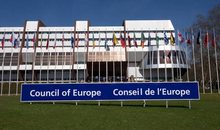
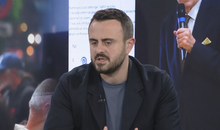
Opposition's denunciations, Xhaferri: We expect the US to listen to us
2025-05-24 20:48:06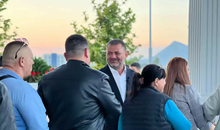
How did PSD "capture" over 50% of the votes in rural areas?
2025-05-24 20:29:54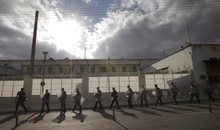
The Albanian woman with the s*x went to meet her husband in Koridalos prison
2025-05-24 20:09:15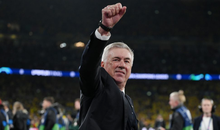
Ancelotti says goodbye to Real Madrid in tears: I love you with all my heart!
2025-05-24 19:49:08
Poisoning in Gramsh, parents of children warn of protest
2025-05-24 19:21:36
Taulant Xhaka retires from football
2025-05-24 18:53:35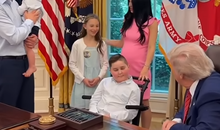
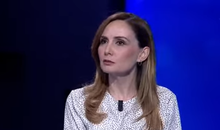
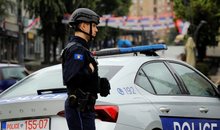
Incident in the north, Serbia issues arrest warrant for Kosovo police officer
2025-05-24 17:59:24
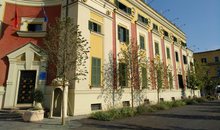
SPAK conducts inspections at Tirana Municipality, 5 phones seized
2025-05-24 17:19:23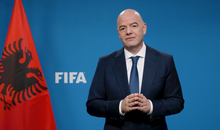
FIFA President congratulates Egnatia on the championship title
2025-05-24 17:00:15
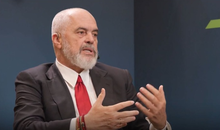
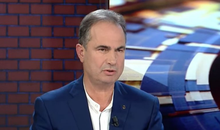
Boçi: The elections were annulled, the DP will continue the fight
2025-05-24 16:06:58
Man reports to police: Wife took my son and ran away, I'm asking for help
2025-05-24 15:45:55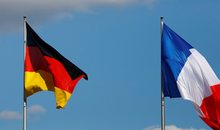
France and Germany with a "non-paper" for Republika Srpska
2025-05-24 15:29:29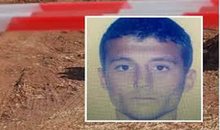

Beware of online scams! Here's how technology fuels financial crimes in Albania
2025-05-24 14:53:33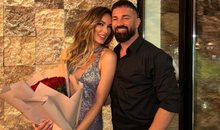

The US military "landed" in Kosovo as part of "Defender Europe 25"
2025-05-24 14:42:19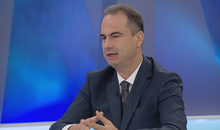
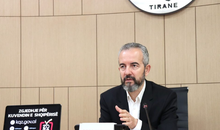
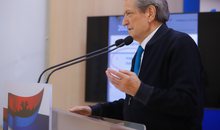
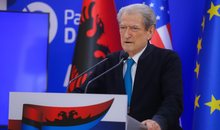
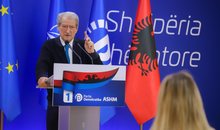
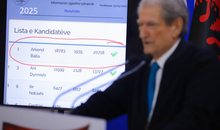
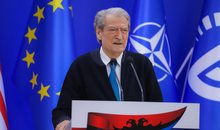
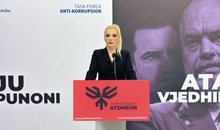
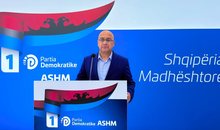
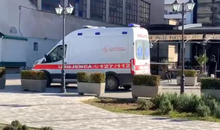
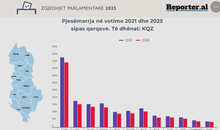
BIRN Analysis: Voters who were absent in the parliamentary elections
2025-05-24 11:19:40
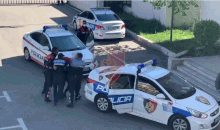
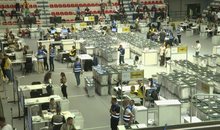
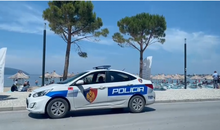

Bus collides with municipal police car in Fier, 6 injured
2025-05-24 09:25:01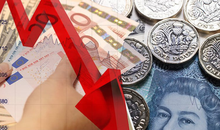
Foreign exchange, May 24, 2025
2025-05-24 09:07:27

With rain and storms, get to know the weather forecast
2025-05-24 08:32:03
What do the stars have in store for you today?
2025-05-24 08:17:04
Morning Post/ In 2 lines: What mattered yesterday in Albania
2025-05-24 08:00:34
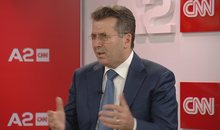
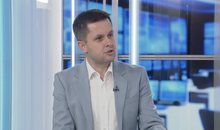
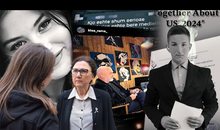
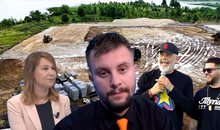
Tirana Lake Park, a campaign center for Noizy. The signatory is silent
2025-05-23 21:55:02


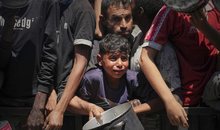
What's happening in Gaza, the struggle for survival in times of war in pictures
2025-05-23 21:02:54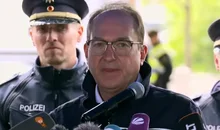
DW: Germany strengthens the return of illegal migrants!
2025-05-23 20:39:57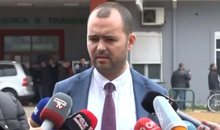


Knife attack at Hamburg train station, 12 injured
2025-05-23 19:54:58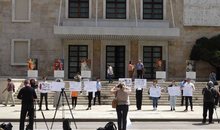
120 children go missing every year in Albania, 12 still missing in 30 years
2025-05-23 19:35:35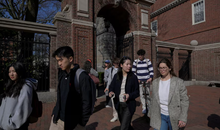
US court suspends order banning Harvard from admitting foreign students
2025-05-23 19:22:41
Zodiac signs that become luckiest after the third decade of life
2025-05-23 19:19:06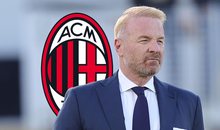
Igli Tare officially appointed as Milan's new Sporting Director
2025-05-23 19:01:12
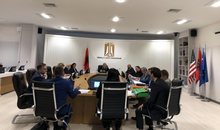
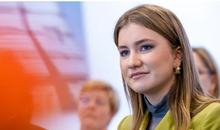
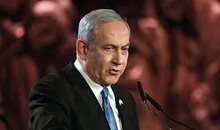
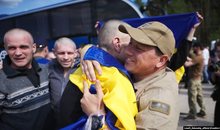
Istanbul Agreement, Ukraine and Russia exchange 800 prisoners
2025-05-23 17:54:20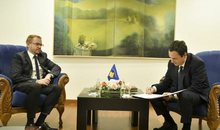

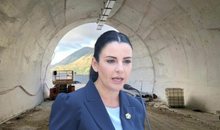

Belina Pupa reacts to serious accusations in Australia for drug cultivation
2025-05-23 16:59:55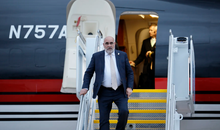


The Llogara tunnel opens tomorrow, until when will it be free of charge?
2025-05-23 16:09:31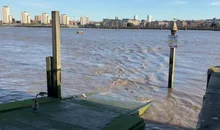
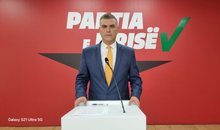
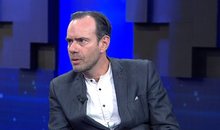

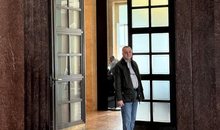

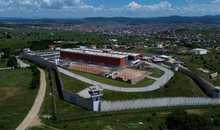
The first prisoners from Denmark are expected to arrive in Kosovo in April 2027.
2025-05-23 14:51:26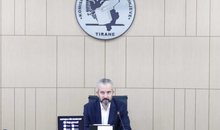
May 11/ Celibashi approves the summary tables of results for 4 districts
2025-05-23 14:50:04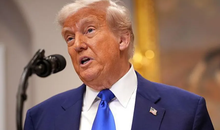
Trump threatens tariffs on EU goods and iPhones
2025-05-23 14:39:47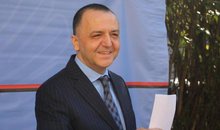
Artan Lame passes away, his mother confirms: This cursed moment came
2025-05-23 14:26:48
Divorce map in 61 municipalities, the South far ahead of the North
2025-05-23 14:15:16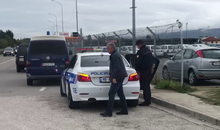
2-year-old Dutch boy falls from third floor of Rinas hotel, taken to hospital
2025-05-23 14:01:40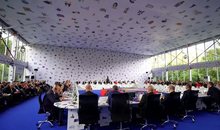
Europeans, you have slandered us.
2025-05-23 13:54:00
Vlora/ He hit the minor and fled the scene, the 27-year-old woman is wanted
2025-05-23 13:41:24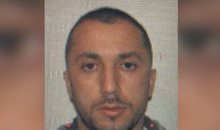
Arrested today in Lalëz, who is Flobens Meçja, was paid by Çopja to kill Alibej
2025-05-23 13:33:43
Here's how many hours you should sleep depending on your age
2025-05-23 13:32:16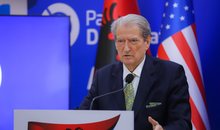
Berisha reveals when he will leave politics
2025-05-23 13:12:15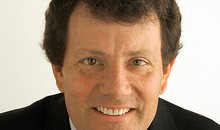
Three proven ways to dismantle an autocrat
2025-05-23 13:03:16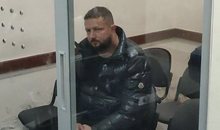
"The goods are 800-cents", how Altin Morina trained RENEA and made bargains
2025-05-23 12:59:07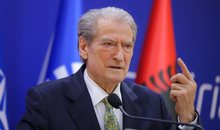
Berisha: Poja was Rama's guest, Surreli was used for gang meetings
2025-05-23 12:49:22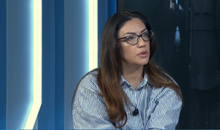
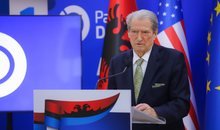

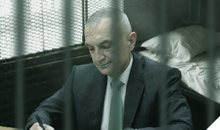
Meta: The criminal regime destroyed the elections, a threat to democracy
2025-05-23 12:16:48
